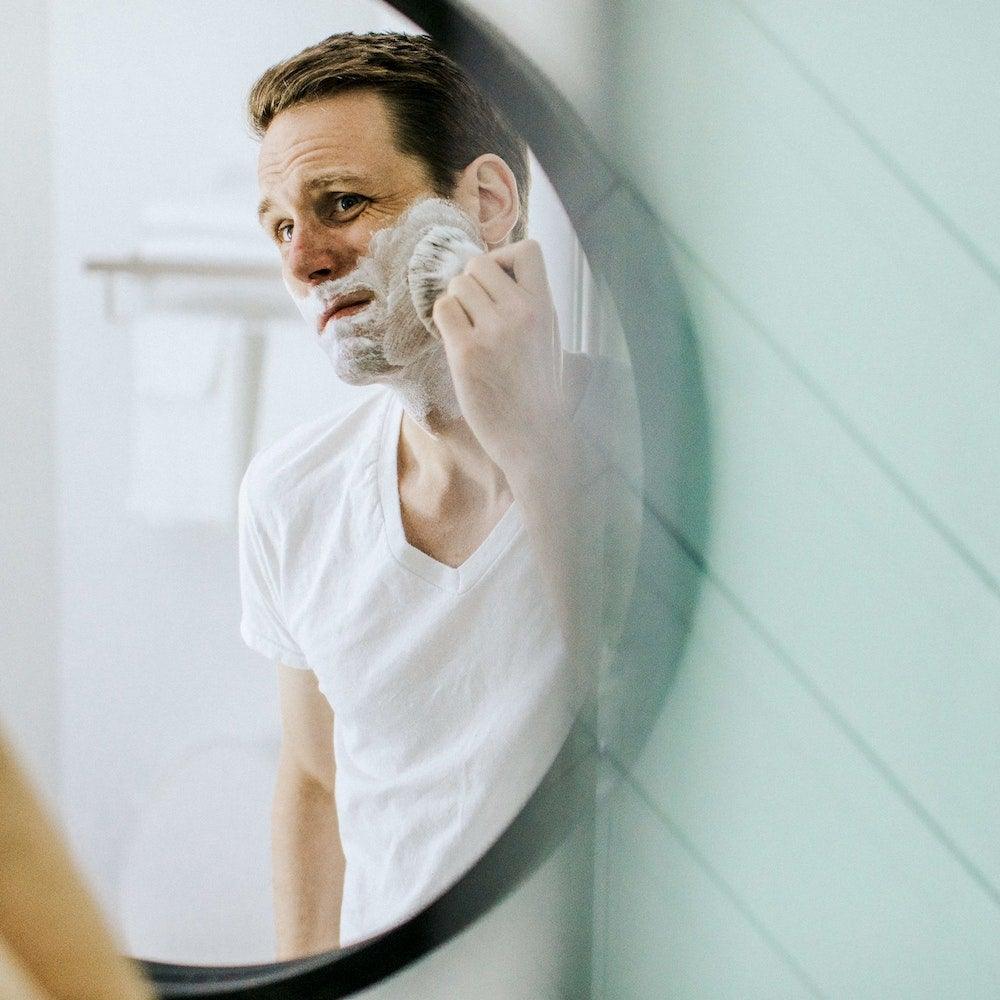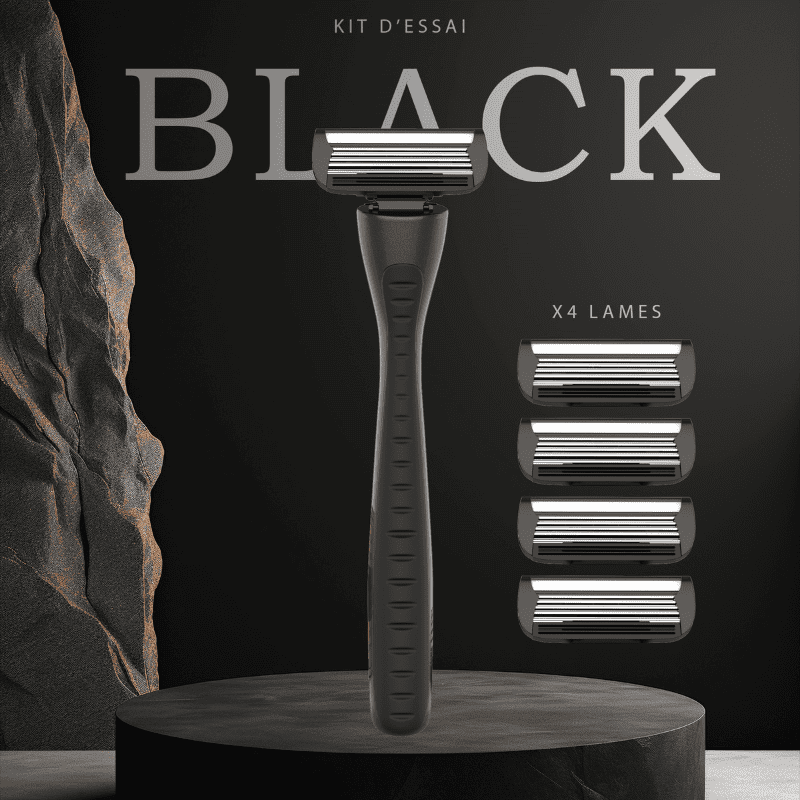For many people, shaving inevitably leads to ingrown hairs. However, there are tips to avoid them and enjoy a pleasant shave. Ingrown hairs can have 2 causes:
- The hair is pushed under the skin during shaving and cannot come out.
- The hair curls on itself while growing and comes back in its bulb.
When hair is trapped under the skin, the body reacts by treating it as a foreign object. The skin becomes inflamed and infected. All skin types can be prone to ingrown hairs, but men with curly hair or dry skin will get them more easily. If the skin is too dry, it can create a barrier to hair growth. The hair then gets stuck in its bulb and continues to grow under the skin. Sebum then accumulates in the hair follicle, coating the ingrown hair and creating an infected pimple. Curled hairs will tend to curl back on themselves more easily, creating an ingrown hair.
Protect your skin
The products used when shaving should create protection between the skin and the razor blade. Shaving foam and shaving gel cans should be avoided because they dry out the skin, creating a barrier to hair growth. It is also best to avoid products containing alcohol or numbing agents because they close the pores, making it more difficult for the hair to come out. It's best to use a shaving oil and shaving soap or cream for a comfortable shave.
Shave with the grain
It's very important to shave with the grain on the first pass of the blade. Shaving against the grain pushes the hair back into its follicle, creating an ingrown hair. If you shave a second time, the hair is already much shorter and less likely to ingrow. Always remember not to apply too much pressure with the blade. Too much pressure can make an existing ingrown hair worse by injuring it and re-infecting it.
Use the right tools
A bad blade will make existing ingrown hairs worse. A dull blade will exert more resistance when cutting the hair. Every time an infected blade passes over an ingrown hair, it will re-infect it. To properly care for your razor, keep it in a clean, dry place, away from moisture.
Using a shaving brush will naturally lift the hair and soften it. Having the hair lifted as the blade passes over it reduces the chance of ingrown hairs. The shaving brush also exfoliates dead skin, allowing the hair to grow back more easily.
Treating an ingrown hair
Apply a natural disinfectant to the ingrown hair, such as lavender essential oil diluted in an oil, or tea tree oil to reduce inflammation and redness. Next, try to mature the hair by accelerating its growth to achieve rapid healing of the ingrown hair. At bedtime, apply a little shea butter, a natural anti-inflammatory, and leave it on overnight.
If you have an ingrown hair on your neck, avoid wearing a turtleneck sweater that may rub the ingrown hair and infect it. Friction from the collar increases the chances of developing or worsening an ingrown hair. Using a scrub twice a week also helps preventing ingrown hairs.


